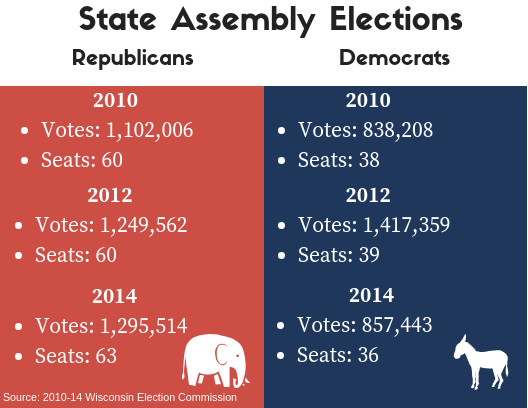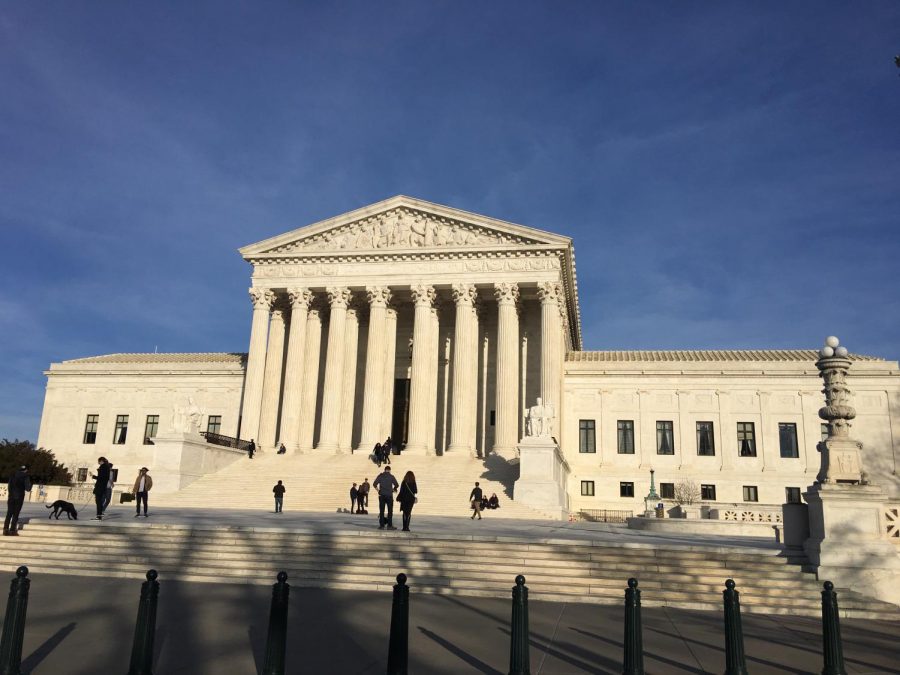 U.S. Rep. Jim Sensenbrenner, R-Wis., joined four democrats Thursday in co-sponsoring a modern Voting Rights Act, a law dating back to 1965 guaranteeing citizens the right to vote regardless of their race.
U.S. Rep. Jim Sensenbrenner, R-Wis., joined four democrats Thursday in co-sponsoring a modern Voting Rights Act, a law dating back to 1965 guaranteeing citizens the right to vote regardless of their race.
The new bipartisan bill, proposed shortly after the Supreme Court nullified parts of the 1965 version, is a rare moment of governance for a legislative body that often falls victim to petty politicking. While the new version of the VRA would modernize these antiquated standards of determining which states implemented discriminatory voting laws, it falls short in a number of key areas.
Part of the VRA the Supreme Court ruled unconstitutional in June determined which states or counties were subject to federal oversight for previously implementing discriminatory voting laws. With the Supreme Court ruling, the federal government lost oversight of states with historically discriminatory voting laws. As a result, state legislatures discussed a slew of voter identification laws.
The loss of federal oversight is why a modernized VRA is being considered in the first place.
One problem the new VRA falls dramatically short of addressing is gerrymandering, the practice of drawing congressional districts ‘creatively’ to mitigate or benefit a certain group’s voting power. While redistricting to mitigate a specific racial group’s voting bloc remains illegal, political gerrymandering is a common practice.
Maryland’s 3rd Congressional District, North Carolina’s 12th and Illinois’ 4th are ideal examples of political gerrymandering. Both Republicans and Democrats are guilty of redrawing district lines to favor their party in the next election.
By creating strongholds for Republicans and Democrats, the practice worsens the partisan politics that plague Washington and serves to mitigate the voices of millions. The new VRA should outlaw political gerrymandering by setting guidelines for redistricting.
Another area of concern, which speaks to our larger problem with voting, is election Tuesdays. While largely accepted, there are drawbacks to weekday voting. Though employers are legally obligated to offer their employees time off to vote, they are not obligated to pay those individuals. Lower class voters who are often paid by the hour are more affected than their relatively more affluent peers.
Many countries hold weekend votes or allow voting to occur over multiple days. With one of the lowest voter turnouts in the developed world, the United States should make it as easy as possible for voters to participate.
Finally, the political animal: voter ID laws.
Voter identification laws became a partisan battleground over the past few years, with Republicans generally being for them and Democrats against. Wisconsin is home to one of the country’s strictest voter ID laws, requiring photo identification to vote. However, an injunction was placed against the law that it is unconstitutional according to Wisconsin’s state constitution.
The new VRA would allow states to continue to enact “reasonable voter ID laws,” Sensenbrenner said in a news conference.
The VRA indicates that “plaintiffs have to show that a state or jurisdiction intentionally discriminated in order to ask the judge to require the state or county to get preclearance,” Amber Wichowsky, an assistant professor of political science, said in an email. “The Sensenbrenner bill lowers that bar by not requiring that plaintiffs show intentionality. This bill carves out an exception for voter ID laws where a court would have to rule that the photo requirement was intentionally discriminatory.”
The problem with this is that discrimination is ‘discriminatory’ by nature, intentional or not. In addition, voter fraud, which many cite as a reason for voter ID laws to be implemented, is by and large a non-entity. The Brennan Center for Justice, a non-partisan policy and law institute run by the New York University School of Law, suggested in a study titled ‘The Truth About Voter Fraud’ that “photo ID laws are effective only in preventing individuals from impersonating other voters at the polls — an occurrence rarer than getting struck by lightning.”
A Voting Rights Act that included an amendment outlawing voter identification laws would surely fail in the Republican dominated House and, thus, the current compromise was struck. It’s just a shame that the compromise disenfranchises hundreds of thousands of otherwise eligible voters.



